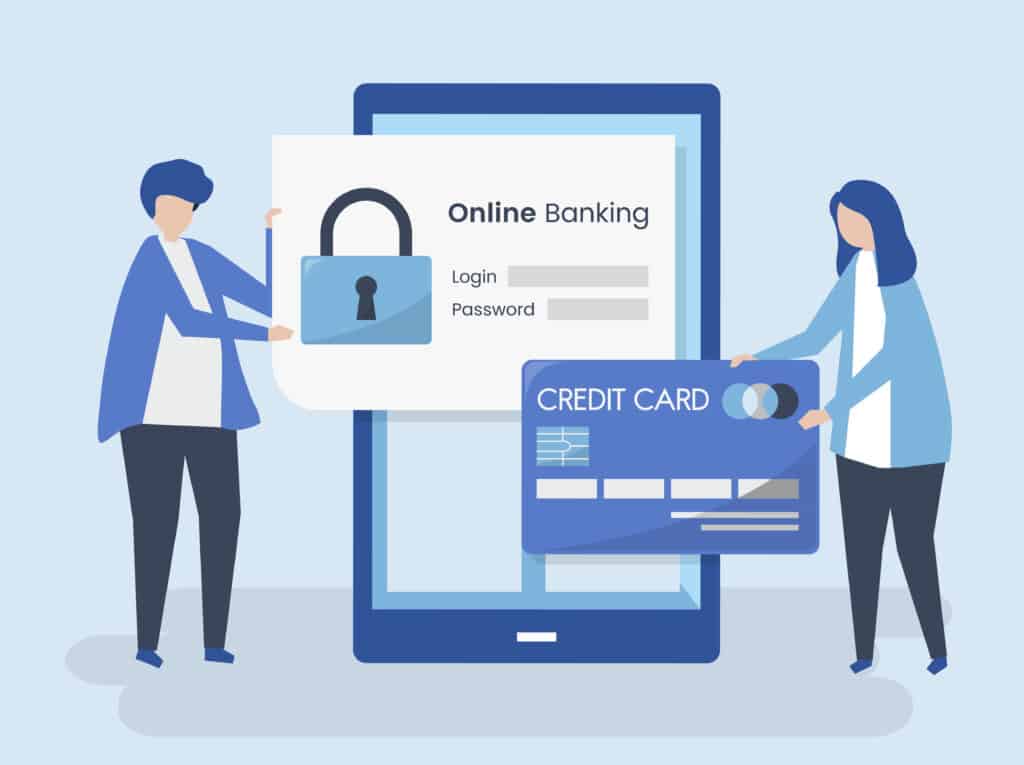Identity Verification Mitigating Risks In Peertopeer Transactions

In the realm of peer-to-peer transactions, ensuring the verification of the identities of all involved parties is essential to facilitate a safe and secure exchange. Identity verification serves as a critical element in the effort to reduce risks such as fraud and scams, safeguarding the privacy of individuals, and fostering trust within the transactional framework. An investigation into the operational dynamics of identity verification within peer-to-peer transactions will be conducted, focusing on the requisite information and methodologies employed. This article will assess the significance, advantages, obstacles, and potential enhancements associated with identity verification in peer-to-peer transactions.
Explore how the implementation of this process can enhance the security and reliability of transactions by looking into its intricacies.
What is Identity Verification?
Identity Verification is the process of confirming the authenticity of an individual or entity’s claimed identity through a series of authentication procedures and checks. This process is fundamental in ensuring secure transactions and minimizing risks within digital environments.
The verification process commonly comprises multiple stages, such as document validation, biometric authentication, knowledge-based authentication, and real-time verification. Document verification entails scrutinizing government-issued identification or other official documents to verify the individual’s identity. Biometric authentication utilizes distinct physical attributes like fingerprints or facial features to authenticate identity. Knowledge-based authentication necessitates responding to security inquiries or providing personal information known only to the individual. Real-time verification guarantees that the presented identity is current and not a fraudulent representation.
It is imperative to emphasize secure data management in identity verification to safeguard sensitive data from unauthorized access and misuse.
Why is Identity Verification Important in Peer-to-Peer Transactions?
Identity verification is an essential component of Peer-to-Peer Transactions, as it serves to establish the authenticity and trustworthiness of both parties involved. This verification process is critical for the prevention of fraudulent activities, the facilitation of secure transactions, and the effective management of associated risks.
What are the Risks of Not Verifying Identities in Peer-to-Peer Transactions?
The absence of proper identity verification in peer-to-peer transactions presents significant fraud risks, such as identity theft and fraudulent transactions. These risks compromise the secure transaction environment and can lead to considerable financial losses.
One common consequence of unverified identities in online transactions is the occurrence of chargeback fraud. In this scenario, a buyer makes a purchase, receives the goods or services, and then disputes the charge with their credit card company, ultimately securing a refund. This practice can leave the seller at a disadvantage, resulting in loss of both the product and payment.
In the absence of verification processes, the likelihood of buyers receiving counterfeit goods or sellers dispatching defective products increases. This situation leads to dissatisfied customers and tarnished reputations, underscoring the importance of identity verification in facilitating trustworthy transactions.
How Does Identity Verification Work in Peer-to-Peer Transactions?
The process of identity verification in peer-to-peer transactions encompasses a series of steps pertaining to personal identification and secure communication. This process is implemented to ascertain the legitimacy of the individuals or entities partaking in the transaction, thereby enhancing secure identification practices and mitigating the potential risk of fraudulent activities.
What Information is Required for Identity Verification?
The information necessary for identity verification typically encompasses personal details, including full name, date of birth, address, and identification documents. These details must adhere to specific verification standards and compliance measures to ensure accuracy and legitimacy.
Depending on the level of verification needed, additional information, such as social security numbers, passport details, or other government-issued identification numbers, may also be required. It is imperative for businesses and institutions to adhere meticulously to these standards to mitigate risks associated with fraud, money laundering, and other illicit activities.
Through effective collection and verification of this information, organizations can cultivate trust with customers, fulfill regulatory obligations, and reduce the exposure to risks related to fraud and identity theft.
What Methods are Used for Identity Verification?
Identity verification methods encompass a variety of techniques, including biometric verification, document verification, and advanced verification technologies. These methods are designed to ensure precise and dependable identification of individuals engaging in peer-to-peer transactions.
Biometric verification employs distinct biological characteristics, such as fingerprints or facial recognition, to authenticate an individual’s identity. Document verification, on the other hand, involves validating official documents like passports or driver’s licenses.
Furthermore, the efficacy of these methods is heightened by advanced verification technologies like machine learning algorithms and artificial intelligence. These technologies streamline the verification process and elevate its accuracy, thereby fortifying the overall system of identity verification.
Through the integration of these diverse methods, businesses can establish a robust identity verification system that not only reduces instances of fraud but also fosters trust in transactions.
What are the Benefits of Identity Verification in Peer-to-Peer Transactions?
The implementation of comprehensive identity verification in peer-to-peer transactions provides a multitude of advantages. These include improved fraud protection measures, secure payment processes, and the crucial element of fostering trust between parties. This contributes to the establishment of a reliable and secure environment for all participants involved.
1. Reduces Fraud and Scams
Identity verification in peer-to-peer transactions offers a significant advantage in combating fraud and scams through effective fraud detection and prevention of counterfeit activities. This process functions by validating the identities of all parties engaged in the transaction, thereby ensuring the authenticity of individuals involved. Through the verification of personal details such as name, address, and government-issued identification, platforms establish a secure environment for users.
Certain verification services leverage sophisticated technologies like biometric authentication and document verification to enhance security measures. These technologies play a vital role in shielding users from identity theft and account takeover scams, thereby safeguarding confidential information and financial resources. By integrating such robust verification techniques, platforms can substantially mitigate the risks associated with fraudulent activities.
2. Protects the Identities of Both Parties
Identity verification plays a critical role in safeguarding the identities of individuals involved in transactions, ensuring the validation and secure handling of their personal information. This process serves to prevent identity theft and establish a secure environment for ID verification.
Individuals who provide their information benefit significantly from identity protection, as it shields them from potential financial losses, reputation harm, and other adverse consequences associated with identity theft. In the same vein, businesses derive advantages from identity verification practices, as it aids in fostering trust among customers, mitigating fraudulent activities, and meeting regulatory obligations.
Secure ID verification serves as a potent weapon in the ongoing battle against cybercrime, effectively adding an extra layer of security that poses challenges for hackers attempting to breach systems. By deploying robust identity verification protocols, organizations can fortify themselves and their clientele against the pervasive repercussions of identity theft.
3. Builds Trust in the Transaction
Establishing trust in peer-to-peer transactions is facilitated by the process of identity verification. This practice not only offers assurance during transactions but also ensures that both parties involved can place their trust in the authenticity and reliability of one another.
By verifying the identities of individuals participating in transactions, potential risks such as fraud and scams can be significantly minimized. For instance, within online marketplaces, the knowledge that the identities of both buyers and sellers have been verified can instill a greater sense of confidence in their interactions. This verification procedure serves to enhance the security and credibility of the transaction, ultimately resulting in a more seamless and trustworthy exchange of goods or services.
What are the Challenges of Identity Verification in Peer-to-Peer Transactions?
Identity verification in peer-to-peer transactions encounters various challenges, such as data privacy considerations, the intricacy involved in establishing resilient security protocols, and the requirement for ongoing risk evaluation to uphold the veracity and security of the verification procedure.
1. Privacy Concerns
Privacy concerns present a significant challenge in the realm of identity verification, as it is imperative to ensure data privacy and secure data handling while adhering to regulatory compliance measures. This is essential for maintaining user trust and preventing data breaches.
Identity verification processes often necessitate the collection and retention of sensitive personal information, such as government-issued IDs or biometric data. This raises inquiries regarding the utilization and protection of such data. Given the escalating occurrences of data breaches and incidents of identity theft, users are becoming increasingly reluctant to share their personal details online.
Compliance measures play a pivotal role in addressing these apprehensions by establishing guidelines and standards for how organizations should securely handle and store user data. By adhering to these compliance regulations, companies can showcase their dedication to protecting user privacy and thwarting unauthorized access to personal information.
2. Technical Limitations
Identity verification faces challenges due to technical limitations, with the effectiveness of verification technologies often impeded by outdated systems, lack of interoperability, and the necessity for secure platforms capable of managing high volumes of verification requests. These obstacles can result in delays in the identity verification processes, heightening the vulnerability to fraudulent activities.
In response to these challenges, businesses are increasingly adopting innovative solutions like biometric authentication and AI-powered identity verification systems. Through the integration of these advanced technologies, organizations can elevate the precision and efficiency of identity verification, ensuring a seamless user experience while upholding stringent security protocols.
Embracing these contemporary tools not only enhances verification accuracy but also streamlines the verification process, thereby bolstering trust and dependability in digital transactions.
How Can Identity Verification be Improved in Peer-to-Peer Transactions?
Implementing sophisticated verification solutions, such as biometric verification and multi-factor authentication, can enhance identity verification in peer-to-peer transactions. These technologies not only bolster security and reliability but also streamline the verification process for users.
1. Utilizing Biometric Technology
The utilization of biometric technology for identity verification provides a secure and reliable approach to identity authentication, enhancing secure authorization processes and minimizing the likelihood of fraudulent activities.
Biometric techniques like fingerprint recognition, facial recognition, and iris scanning have gained popularity for their precision and user-friendly nature. The integration of biometric verification in peer-to-peer transactions enhances security measures, rendering it extremely challenging for unauthorized entities to breach or manipulate sensitive data. This not only enhances user trust but also simplifies the verification procedure, enabling seamless and effective transactions between involved parties.
2. Implementing Multi-Factor Authentication
The implementation of multi-factor authentication introduces an additional level of security to the process of identity verification. This augmentation serves to enhance the overall security of authentication procedures and mitigates the risk of identity fraud by employing secure verification methods.
Incorporating multiple factors achieves the heightened security provided by multi-factor authentication. These factors typically include something the user knows (such as a password), something the user possesses (such as a fingerprint or a smart card), and something the user inherently is (biometric data). By amalgamating these distinct factors, multi-factor authentication significantly bolsters the verification process. Consequently, even if one factor is compromised, the remaining factors serve as supplementary layers of protection.
This approach not only ensures the protection of sensitive information but also fosters user confidence and trust in the security protocols established by organizations.
3. Partnering with Trusted Third-Party Verification Services
Collaboration with reputable third-party verification services can significantly improve the credibility and security of peer-to-peer transactions. These services leverage their expertise and advanced verification technologies to ensure trustworthy and secure identity authentication.
Engaging these services enables individuals involved in peer-to-peer transactions to mitigate the risks associated with identity theft, fraud, and unauthorized access. Established third-party verification providers like ID.me and Jumio offer robust solutions for verifying user identities. These verification processes not only benefit sellers in online marketplaces by enhancing accuracy and efficiency, but also assure buyers that they are engaging with individuals authenticated through a secure and dependable system.
Frequently Asked Questions
What is Identity Verification and why is it important in Peer-to-Peer Transactions?
Identity Verification is the process of confirming the identity of an individual or organization. It is important in Peer-to-Peer Transactions to ensure the safety and security of both parties involved in the transaction.
What are the risks associated with not verifying identities in Peer-to-Peer Transactions?
Not verifying identities in Peer-to-Peer Transactions can lead to fraud, identity theft, and financial loss for both parties. It also leaves the transaction vulnerable to potential legal issues.
What are some common methods used for Identity Verification in Peer-to-Peer Transactions?
Some common methods include document verification, biometric authentication, and identity background checks. These methods help to validate the identity of the individuals involved in the transaction.
How can Identity Verification help to mitigate risks in Peer-to-Peer Transactions?
Identity Verification helps to ensure that the individuals involved in the transaction are who they claim to be. This reduces the chances of fraud and helps to build trust between the parties.
Is there a difference between Identity Verification for individuals and organizations in Peer-to-Peer Transactions?
Yes, the process for verifying an individual’s identity may differ from that of an organization. Organizations may require additional documentation or verification steps to confirm their legitimacy.
What should I do if I suspect fraudulent activity in a Peer-to-Peer Transaction?
If you suspect fraudulent activity in a Peer-to-Peer Transaction, you should immediately stop the transaction and report it to the proper authorities. It is also important to document any evidence or information that may be helpful in the investigation.



